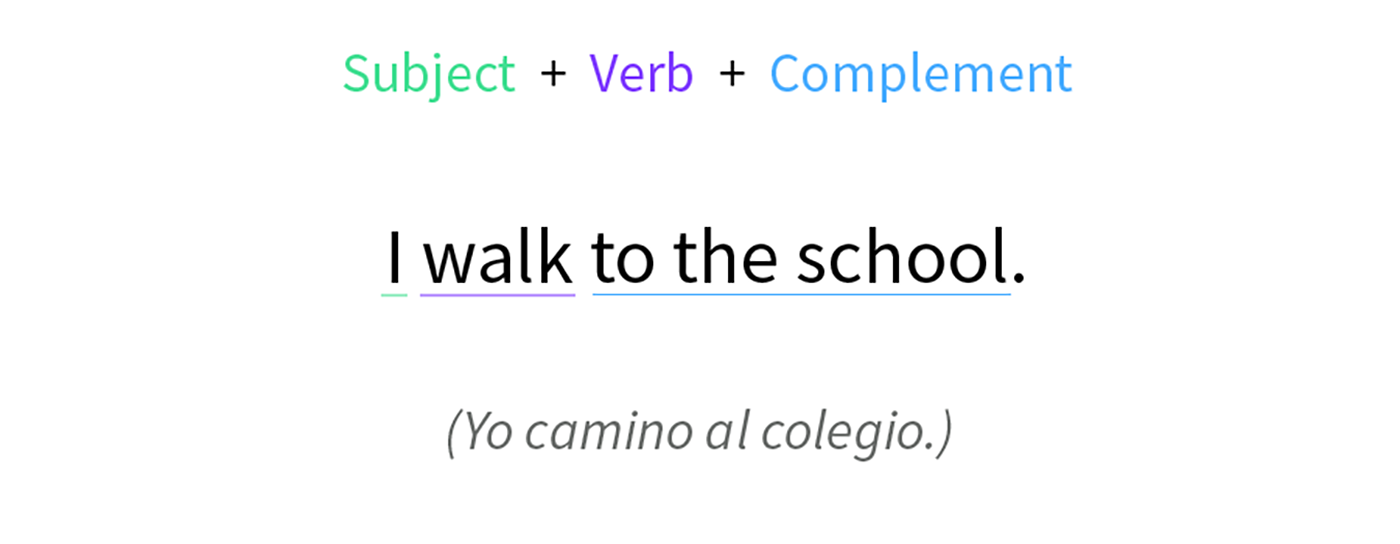hola sean bienvenidos En este blog el objetivo es conocer diferentes tipos de verbos en inglés para tener un mejor conocimiento del idioma inglés .
¿Qué son los verbos en inglés?
Los verbos son las palabras que se refieren a una acción, un estado o un evento.
Por ejemplo:

Los verbos pueden ser transitivos o intransitivos. Los primeros son aquellos que van acompañados de un objeto directo, que es sobre quien recae la acción. Por su parte, los segundos no necesitan ir acompañados de un objeto directo. Por ejemplo:
Transitivo:
| Intransitivo:
|
En el caso del verbo transitivo, se aclara que fue aquello que Mary rompió. Pero en el cuanto al verbo intransitivo, no hay nada ni nadie en quien pueda recaer la acción además de quien la realiza.
Existen muchos tipos de verbos como los verbos modales, los verbos auxiliares, como To do y To have, y verbos que expresen una preferencia.
Además, dependiendo de cuando se realiza la acción, los verbos se pueden conjugar en:
Estos son 20 ejemplos de verbos en ingles
1. To be – (ser o estar)
| I (yo) | am |
| you (tú) | are |
| he/she/it (el/ella) | is |
| we (nosotros) | are |
| they (ustedes/vosotros) | are |
Ejemplo 1: I am who I am. (Soy quien soy.)
2. To have – (tener)
| I (yo) | have |
| you (tú) | have |
| he/she/it (el/ella) | has |
| we (nosotros) | have |
| they (ustedes/vosotros) | have |
Ejemplo: She has everything her heart desires. (Ella tiene todo lo que su corazón desea.)
3. To do – (hacer)
| I (yo) | do |
| you (tú) | do |
| he/she/it (el/ella) | does |
| we (nosotros) | do |
| they (ustedes/vosotros) | do |
Ejemplo: Do what I say, not what I do. (Haz lo que digo, no lo que hago.)
4. To say – (decir)
| I (yo) | say |
| you (tú) | say |
| he/she/it (el/ella) | says |
| we (nosotros) | say |
| they (ustedes/vosotros) | say |
Ejemplo: You say the most fascinating things, really. (Siempre dices cosas increíbles, de verdad.)
5. To get – (obtener)
| I (yo) | get |
| you (tú) | get |
| he/she/it (el/ella) | gets |
| we (nosotros) | get |
| they (ustedes/vosotros) | get |
Ejemplo: I get good marks because I study a lot. (Saco (lit. obtengo) buenas notas porque estudio mucho.)
6. To make – (hacer)
| I (yo) | make |
| you (tú) | make |
| he/she/it (el/ella) | makes |
| we (nosotros) | make |
| they (ustedes/vosotros) | make |
Ejemplo: You make me feel like dancing. (Haces que me den ganas de bailar.)
7. To go – (ir)
| I (yo) | go |
| you (tú) | go |
| he/she/it (el/ella) | goes |
| we (nosotros) | go |
| they (ustedes/vosotros) | go |
Ejemplo: I go to the supermarket three times a week. (Voy al supermercado tres veces a la semana.)
8. To know – (saber, conocer)
| I (yo) | know |
| you (tú) | know |
| he/she/it (el/ella) | knows |
| we (nosotros) | know |
| they (ustedes/vosotros) | know |
Ejemplo: I know everything about the history of France. (Lo sé todo sobre la historia de Francia.)
9. To take – (tomar)
| I (yo) | take |
| you (tú) | take |
| he/she/it (el/ella) | takes |
| we (nosotros) | take |
| they (ustedes/vosotros) | take |
Ejemplo: This is the deal. Take it or leave it. (Este es el trato. Lo tomas o lo dejas.)
10. To see – (ver)
| I (yo) | see |
| you (tú) | see |
| he/she/it (el/ella) | sees |
| we (nosotros) | see |
| they (ustedes/vosotros) | see |
Ejemplo: I can see what this is all about. (Puedo ver de qué se trata todo esto.)

Comentarios
Publicar un comentario